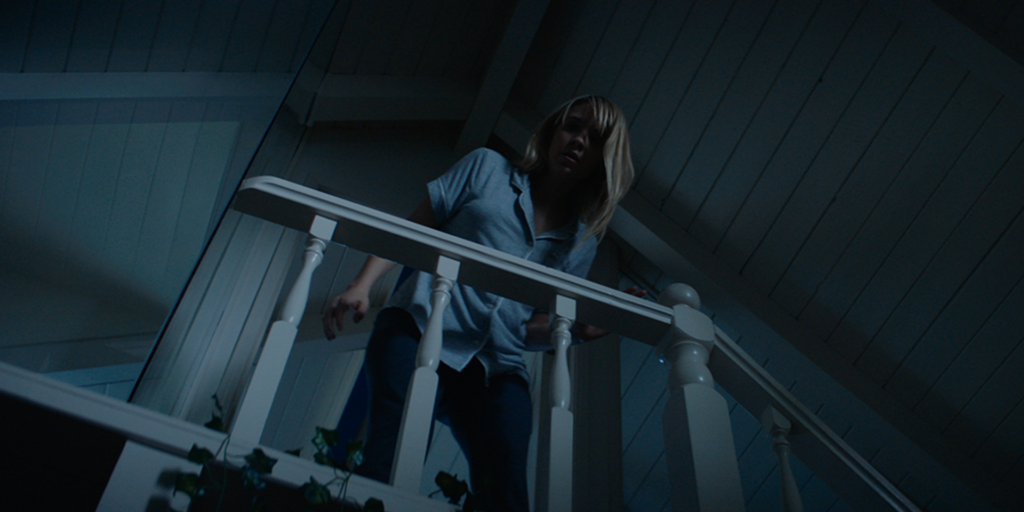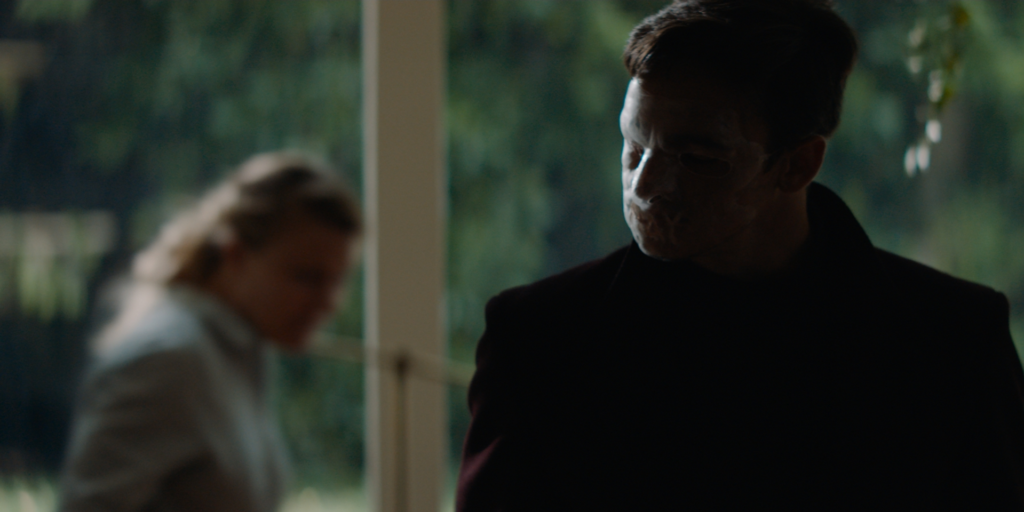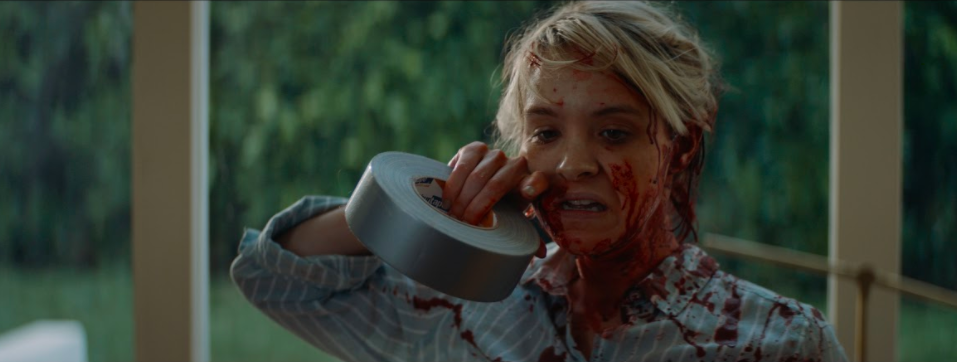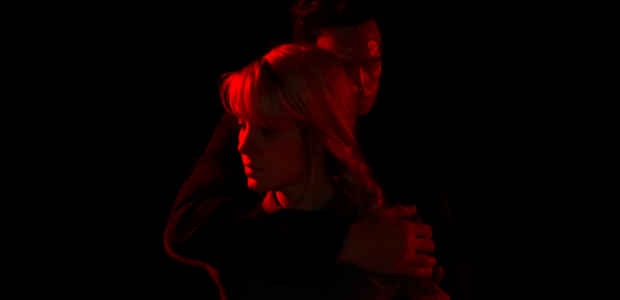“I’ll figure it out!”
”You always do!”

May (Brea Grant) is a successful self-help author navigating an uncertain time in the publishing industry. Still, she has a wide fanbase thanks to her blog and popular book “Go It Alone,” plus a gorgeous house that she shares with her husband Ted (Dhruv Uday Singh.) While the audience can sense some strain between them, things are mostly ticking along just fine until a home invader breaks in to attack the couple.
May, of course, is shaken to her core. Capable but terrified at the intrusion, what’s even more shocking is her husband’s response: This is old hat to him, and he claims that this man comes along nightly to attack them. Well, mainly her. Soon, it’s clear that she’s completely on her own to figure out what exactly is going on and how she’s supposed to survive.
The film’s masked attacker has access to powers outside our protagonist’s current understanding. He always has access, and schedule and location changes don’t seem to slow him (in fact, they very well might encourage him); he’s tireless, relentless, fearless, and deathless. No matter how hard May tears him a new one while defending herself, he disappears instantly even when he was clearly killed. The one grace he leaves is plenty of evidence and blood behind each time, which unfortunately doesn’t seem to help to cops-turned-daily-visitors at all.
In an ideal world with fair rules, May is a dynamo. Intelligent, confident, sociable, healthy, and beautiful, though these useful traits pale in comparison to May’s work ethic and drive. More often than not, her pop psychology profession appears to be most useful to herself as a profitable tool to funnel both her ambitions and anxiety into something that can also help other women in that special abstract way the self-help industry excels at.
In an unfair and uncertain world, this world, May’s daily damnation is rooted in balancing her own survival, relationships, and career with a new normal. She’s still playing by the rules even though her competitor already upturned the table the game was on, and the effectiveness of doing things “by the book” erodes quickly. It turns out that unstoppable killers eschewed the seven habits of highly effective people some time back.
May doesn’t find anymore solace with a woman social worker. “I feel like I don’t know how to play the game anymore — like I don’t understand the rules. I used to be really good at the game but now everything feels different.” She’s then asked rote questions every survivor is asked then sent on her way.
May’s responses to the reliable daily assaults shift constantly, giving the audience a refreshing experience of true, inconsistent humanity. There’s no expert she can visit who can give her the scoop; she’s a woman on the verge of an eternity of nervous breakdowns who can’t afford the luxury of actually breaking down. One of Brea Grant’s biggest strengths as an actress is that she’s mastered the strained “I’m okay” smile to a friend before hurrying on to a new topic. She doesn’t have an all-knowing wise person to go to, but she doesn’t seem to realize that she can still talk to her friends instead. This oversight, the inability to have an honest conversation about what she’s truly going through, also handicaps her ability to help them in turn.

The higher the concept is in a narrative, the trickier it is to stick the landing. Unfortunately, it often puts the onus of how effective the plot and how relatable the character’s journey was onto the grand finale in an outsized way. While LUCKY isn’t a flawless film (the few forays into heightened, absurdist comedy took me out rather than making me feel off-kilter along with the protagonist), it’s fascinating and quite vulnerable, with a skin-pricking sense of unease and tension throughout. Those who prefer their horrors to have a solid villain with a detailed backstory will probably be disappointed, but viewers wanting something that speaks to the otherwise unspoken tensions in otherwise polite society will find a lot to dig into here. May is a strong but flawed heroine, maybe one of the most relatable that I’ve ever seen portrayed.
LUCKY is a gripping look at the nightmarish side of the American Dream, that underbelly that pushes individualism and exceptionalism so hard that the road to success is littered with the bodies of those similarly disenfranchised we could have — should have — helped. If there’s one thing we can get out of trauma, it’s knowledge about ourselves and the inner machinations of others. The ability to know when to “go it alone” versus when one should look into the concept of “strength in numbers” threads throughout the marrow of the story, and it’s a conceit that hits all the harder in 2020.
Natasha Kermani keeps the film spare but active, holding to her slow-burn powers of letting characters unfold the story at their own pace much as she did in the wonderful IMITATION GIRL. Brea Grant’s script is wrestling with some huge themes and issues that are still in their fresh wound state right now, and it does so with a lot of grace and a lot of nerve. This is writing that comes from the trenches but emerges with empathy to spare. No character is let off the hook, but they’re also shown as multi-dimensional people who, on the surface, are convinced that they’re trying to do the right thing.
LUCKY’s ultimate strength is its acknowledgment and subversion of the Final Girl trope with the simple truth that one woman barely scraping by in her survival isn’t truly a happy ending.

LUCKY will be screening on Sunday, August 23 at 9:45 PM and Friday, August 28 at 11:00 PM Eastern. It will be coming to the Shudder platform via Epic Pictures’ DREAD label.
Tags: Brea Grant, Fantasia Film Festival, Hunter C. Smith, Kausar Mohammed, Kristina Klebe, Natasha Kermani



No Comments